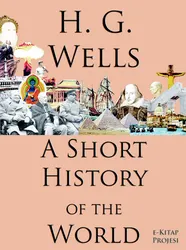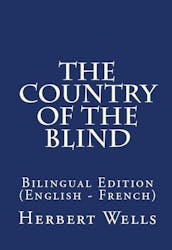„The Bulpington of Blup”, a 1932 novel by H. G. Wells, is a character study analyzing the psychological sources of resistance to Wellsian ideology, and was influenced by Wells’s acquaintance with Carl Gustav Jung and his ideas. Theodore Bulpington is a very ordinary man – with a very vivid imagination. Ill at ease with himself, he sees a way to recreate his identity by adding layer upon layer of deception. This he does with such panache that eventually he becomes an impostor, a liar and a cheat. But with so many different masks to hold in place, his carefully woven deception soon spirals out of control and heads towards the chaos of mental torment. The novel is also of interest for its extended analysis of psychological responses to World War I.

Learn French with Bilingual Books
Alexandre Dumas, Ambrose Gwinnett, Arthur Conan Doyle, Bram Stoker, Charles Dickens, Charles Kenneth Scott-Moncrieff, Charles Perrault, Charlotte Bronte, Daniel Defoe, Edgar Allan Poe, Edith Wharton, Emile Zola, Friedrich Wilhelm Nietzsche, Gustave Flaubert, Guy Maupassant, Hans Christian Andersen, Harriet Beecher Stowe, Herbert George Wells, Honoré de Balzac, Ivan Turgenev, James Fenimore Cooper, Jerome Klapka Jerome, Jules Verne, Leo Tolstoy, Lewis Carroll, Marcel Proust, Mark Twain, Mary Wollstonecraft Shelley, Maurice LeBlanc, Nikolai Gogol, Oscar Wilde, Prosper Mérimée, René Descartes, Robert Louis Stevenson, Victor Hugo, Voltaire, Walter Scott, William Shakespeare
book
A Short History of the World
Herbert George Wells
book
La máquina del tiempo
Herbert George Wells
book
The First Men in the Moon
Herbert George Wells
book
Une histoire des temps à venir
Herbert George Wells
book
8 Best Fantasy Novels
Herbert George Wells
book
The Time Machine
Herbert George Wells
book
The War Of The Worlds
Herbert George Wells
book
The Country Of The Blind
Herbert George Wells
book
The Wheels of Chance
Herbert George Wells
book
The World Set Free
Herbert George Wells
book
Tono-Bungay
Herbert George Wells
book
